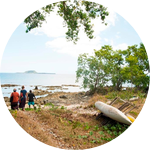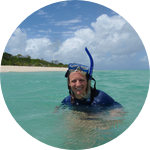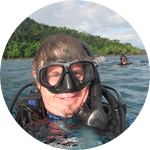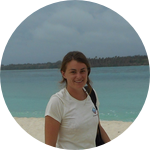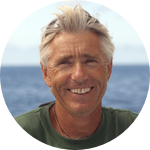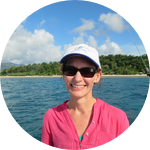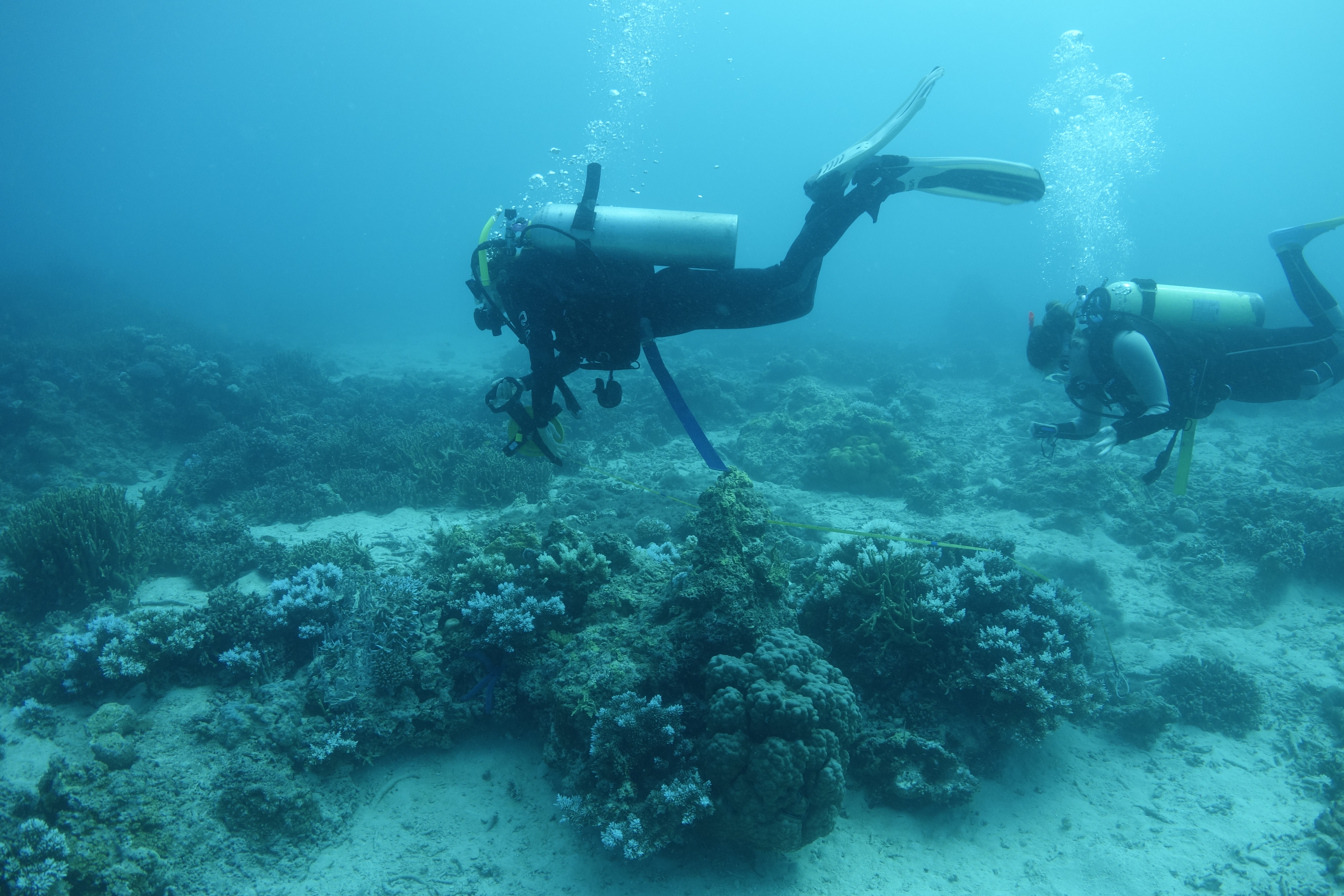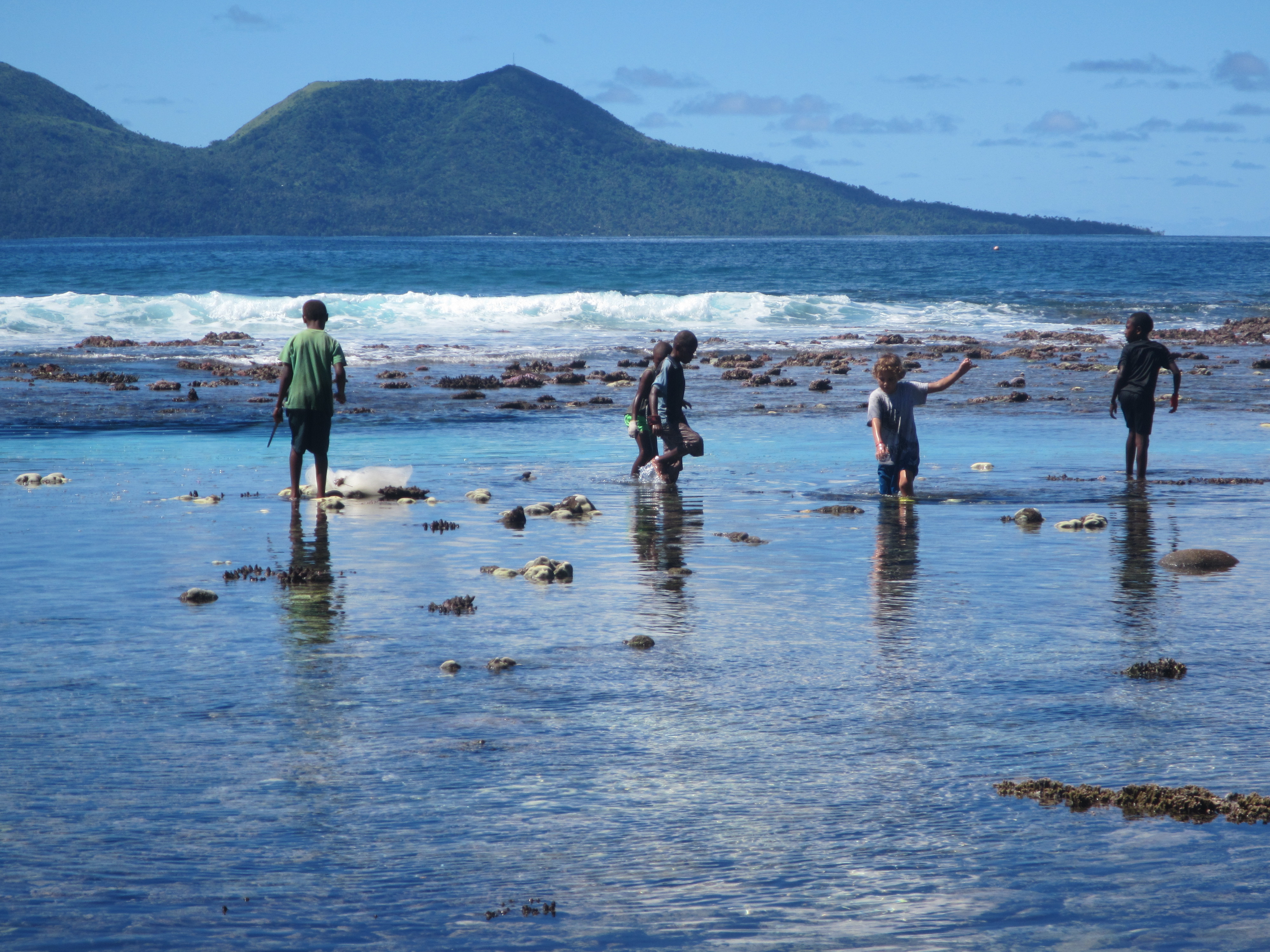About This Project
Coral reefs support marine animals, including fish & shellfish that Pacific communities use for food. We are working with communities to collect data on reef condition, fish populations and fish catches. The data will help us understand reef changes from recent cyclone, predation and bleaching damage, and develop local monitoring tools that can inform local actions to improve reef health and promote sustainable fishing so reefs continue to provide food for communities.
Ask the Scientists
Join The DiscussionWhat is the context of this research?
Coastal communities in north Efate, Vanuatu get 60% of their protein from fish (Bell et al. 2011), and are thus critically reliant on their coral reefs. They therefore have a strong association with their reefs and a need to protect them for future generations. Natural disturbance events can severely impact reefs, the fish they support and local people. In the past 2 years, coral reefs in north Efate have experienced multiple destructive impacts, including category 5 Tropical Cyclone Pam, predation by coral-eating crown-of-thorns starfish and coral bleaching. These impacts are expected to become more frequent due to climate change, and declining reef habitats cannot support healthy fish populations with consequences for communities and their food security (Bell et al. 2013).
What is the significance of this project?
Empowering local communities with the tools to understand and manage their own resources is an important way to protect reef ecosystems, particularly as impacts increase due to climate change. Our project will help understand the effects of multiple stressors on reef habitats, fish populations and importantly, food for coastal communities. If local people can monitor their own reefs and fish catches with a clear link between reef health, fish populations and fish catches, communities can better target local actions to promote reef resilience and sustainable practices (Bell & Taylor 2015). Although north Efate communities use tabu (closed) areas to manage their reefs, they do not know if they are effective, or link reef health with fishing activities.
What are the goals of the project?
We are testing whether a toolkit to monitor reef fish catch can help local communities better manage their food resources. To do this, we will collect data on fish populations, reef health, & community fish catches, & use it to teach how to approach local fishing with reef health in mind. Reef health data (2015-16) shows that reefs were impacted by TC Pam and predation, with reduced habitat available. Analysis of the fish population and fish catch data will identify where these impacts have affected fish, and what species and locations catch surveys need to focus on. Our toolkit will walk community monitors from 27 villages through steps to collect & analyse fish catch data & inform decisions on fishing.
Budget
This research is part of the RESCCUE project implemented by the Pacific Community (SPC), and funded by AFD & FFEM, which conducted 2 field trips (2015 & 2016) to collect data at 16 sites: (1) post-cyclone reef condition, (2) coral bleaching extent and severity, (3) fish populations, and (4) water quality. These data are being analysed to document current marine ecosystem status, including post-disturbance reef recovery, and informed development of a community monitoring toolkit.
The budget will be used to collect critical catch data from fisherfolk, enter and analyse the catch data with the fish population (biomass and abundance) data. We will use an established database in the Pacific - SPC ProcFish - to assess data, and determine if current populations can continue to provide food for communities. The budget will cover training of 10 community monitors to analyse fish catch data as part of a monitoring toolkit, and interpret the results to inform local decisions on fishing.
Endorsed by
Meet the Team
Affiliates
Team Bio
The team are part of the RESCCUE Vanuatu project and include myself as Principal Investigator, supported by scientists who are specialists in their respective fields: David Welch (fisheries scientist, JCU & C2O Fisheries), Jane Waterhouse (marine ecosystems & water quality, JCU & C2O), and Glenn Edney and Eryn Hooper (community monitoring, OceansWatch). Collectively, the team brings dynamic skills to achieve the project goals and work with communities.
Johanna Johnson
As Adjunct Research Fellow at James Cook University (JCU) and Senior Scientist at C2O my goals are to deliver robust science as the foundation for effective natural resource management. I have over 22 years experience in marine ecology and conservation, specialising in translating science for management. My current projects span a range of topics from: community-based reef management, climate change vulnerability and adaptation of reef ecosystems, and state of the marine environment assessments. I specialise in tropical marine ecology and community food security, and have worked in: the Great Barrier Reef, Torres Strait islands, Pacific Island region, India, and southeast Asia. My focus is on applied research to facilitate a sustainable future for marine ecosystems and dependent people. My full professional experience and publication record is available on ResearchGate.
David Welch
David Welch has over 22 years' experience in marine research, specialising in fisheries biology and ecology, fisheries stock assessments, marine monitoring, fisher surveys, researching the effects of climate variability on fisheries, climate change vulnerability assessment frameworks, developing and implementing marine education and training programs, and fisheries sectoral engagement. He has worked extensively throughout tropical (including the Great Barrier Reef) and temperate Australia, the Pacific region, the Indian Ocean and the North Sea. David is the Principle Scientist at C2O Fisheries and and an Adjunct Research Fellow at James Cook University (JCU).
Eryn Hooper
Equipping people with skills to be able to manage their own resources is crucial in the face of climate change and population growth. I am really excited to be part of this project that aims to do exactly that. I have worked on a range of projects focusing on monitoring marine protected areas, witnessing the recovery of habitat as well as fish and invertebrate abundance. Having worked with remote communities in the more Northern islands of Vanuatu and Eastern Solomon Islands I have listened to stories of peoples’ relationship with the ocean and their reef and worked with them to build monitoring programs appropriate for their needs.
Glenn Edney
Glenn Edney is an Ocean ecologist, underwater naturalist, sailor and professional diver. He has been exploring the Ocean and interacting with Ocean life for more than 30 years. He has an MSc in Holistic Science from Schumacher College and Plymouth University UK. His research is focused on understanding the Ocean as a living system and the role she plays as the primary life support system for our planet. He has a strong interest in bringing together traditional indigenous Ocean knowledge and modern scientific ecological understanding. For the past four years he has been collaborating with OceansWatch.org in working with communities in Vanuatu and the Solomon Islands to develop community based, qualitative assessment methodologies to monitor the health of local reefs.
Jane Waterhouse
The ocean is one of my favourite places to be, and I am passionate about helping people to manage our resources so that we can keep them as amazing and special places. I have 20 years' experience working in the Great Barrier Reef in water quality science, catchment management, monitoring and evaluation, science synthesis and regional planning. I work in a small consultancy and at James Cook University working on projects that aim to address important issues about land-sea interactions for the Great Barrier Reef. More recently I have joined this team of marine experts to work with local communities in Vanuatu to help them learn more about looking after their marine resources.
Additional Information
This research builds on the RESCCUE project in North Efate, Vanuatu and ultimately aims to promote the use of the monitoring toolkit in other coastal Pacific communities based on their local ecology and objectives. This will support local decision-making that can sustain both reef ecosystems and food supplies.

Lab notes that will be provided to backers include:
1. Summary of current reef health and the impacts of Tropical Cyclone Pam, starfish predation and coral bleaching (including photos from field surveys).
2. Notes from the next field mission in September 2016 updating donors on:
a. the current status of current fish catches, and community options for managing their fishing practices (including footage from catch surveys and fishing on reefs).
b. working with local communities to develop a novel community-based monitoring toolkit and how the practical elements of data collection are progressing (including storytelling by local community resource monitors).
Project Backers
- 29Backers
- 100%Funded
- $5,000Total Donations
- $172.41Average Donation
